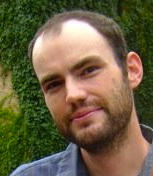
By Andrew Cohen
The Samuelson Law, Technology & Public Policy Clinic has submitted an amicus brief in support of a federal case against the National Security Agency (NSA). Represented by the Electronic Frontier Foundation, a coalition of 22 organizations—from gun ownership advocates to Greenpeace—asserts that the NSA’s ongoing practice of collecting and storing vast numbers of Americans’ phone records is illegal.
The Samuelson Clinic brief argues that without court oversight, United States intelligence agencies risk repeating historical abuses such as monitoring political opponents and other innocent Americans. Under the direction of Clinic Director Jennifer Urban ’00 and Senior Fellow Attorney Chris Hoofnagle, students Charlie Crain ’14, Jesse Koehler ’14, and Samia Hossain ’14 conducted exhaustive research and helped draft the brief.
“What surprised me most in our research was the extent and consistency of this overly broad surveillance that’s gone on since before World War II,” Koehler said. “Talk about bipartisan support—it has expanded consistently no matter which party held the Presidency.”

Submitted to the U.S. District Court in First Unitarian Church of Los Angeles v. NSA, the brief is on behalf of three renowned experts on the history of American surveillance: James Bamford, the preeminent chronicler of the NSA; Peter Fenn, who was a staff member to the Senate Intelligence Committee; and Loch Johnson, former staff director of the House Subcommittee on Intelligence Oversight. All were closely involved in a comprehensive review of U.S. intelligence operations completed by a Senate committee in the 1970s.
Drawing upon its three experts, the brief reveals parallels between abusive practices of the past and today’s monitoring programs. After World War II, historical evidence shows that intelligence agencies conducted politically-motivated surveillance of Americans including Supreme Court Justice William O. Douglas, Martin Luther King, Jr., Senator Adlai Stevenson, Congressman Abner Mikva, White House advisers, congressional staff members, journalists, and many ordinary Americans exercising associational and free speech rights. The brief urges the court to apply existing legal limits on government surveillance powers to address risks posed by the executive branch—and to determine the limits of intelligence agencies’ activities.

“Decades of too much secrecy and too little oversight led us to this point, and history shows that abusive surveillance can’t be prevented by simply putting different people in place,” Crain said. “We don’t think people working at NSA are operating in bad faith. They’re asked to secretively gather as much information as possible, and the historical pattern shows that this creates expansive collection and eventually results in abuse.”
Upholding the laws
U.S. law has long recognized a First Amendment right to freedom of association and the ability to express political views as a group. In numerous cases, the U.S. Supreme Court has found that citizens are less likely to associate with organizations when they know the government is monitoring their activities and can track their interactions.
In its brief, the Samuelson Clinic calls for upholding that constitutional guarantee as well as the 1978 Foreign Intelligence Surveillance Act (FISA). That law, designed to address concerns about overbroad monitoring, was the first statutory regime aimed at protecting Americans from domestic surveillance. But with the events of 9/11 and the major technology advances that followed, FISA protections have come under strain.
“Our brief shows that when you give the government unfettered access, the information gathered will eventually be misused for purposes that weren’t originally intended,” Koehler said. “That’s why FISA was enacted by Congress, to prevent these abuses. Allowing the government to go back to a previous pre-FISA paradigm circumvents this protective structure.”
Through its historical presentation, the clinic explains that the court needs to step in because intelligence agencies naturally expand programs over time, which leads to collecting information too aggressively. If courts fail to recognize the dangers of unchecked surveillance and the resulting constitutional violations, Crain believes it will fall on the public to push for a legislative solution—especially now that it’s easier than ever to store mass amounts of data.
“The default tendency is to defer to the government when it says this authority is needed because of the dangers associated with intelligence work,” he said. “We’re trying to broaden the picture and say there are also dangers to giving the government free reign.”
With the nation embroiled in a heated security versus privacy debate since last summer, when Edward Snowden revealed classified information about the NSA’s activities, Koehler and Crain were grateful for the chance to work so closely on a timely policy issue.
“The Samuelson Clinic is a big reason why I came to Berkeley,” Koehler said. “Students are given a lot of individual responsibility and we get to integrate our research within a tight-knit group process. It’s been amazing to get this involved with something that has captivated the whole country. The timing couldn’t have been better.”